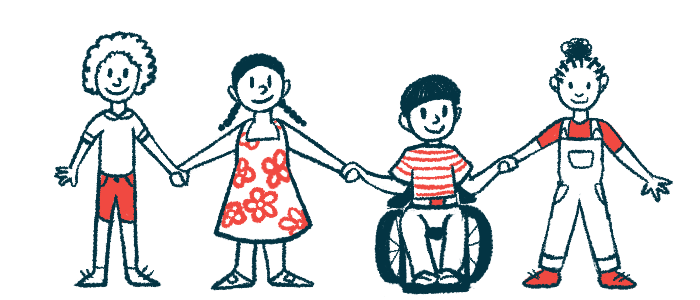CBD Epidiolex Fails to Improve Life Quality in Dravet Children in Study
Cannabidiol effects possibly hampered by patients' severe disease symptoms
Written by |

Six months of treatment with the oral cannabidiol (CBD) solution Epidiolex among children and adolescents with Dravet syndrome or Lennox-Gastaut syndrome (LGS) was not associated with improvements in caregiver-reported quality of life or adaptive behaviors.
That’s according to a small Korean study — though researchers noted that the ability to identify such improvements may have been hampered by the clinical severity of the included patients. These children had treatment-resistant seizures, significant developmental delays, and intellectual disability.
“The relationship between CBD and [quality of life] needs to be investigated in larger patient populations,” the researchers wrote.
“CBD has been found to be an efficacious antiseizure drug for patients with Lennox-Gastaut syndrome and Dravet syndrome, but it did not improve [quality of life] in pediatric patients with treatment-resistant epilepsy in our study,” the team wrote.
The study, “Effects of Cannabidiol on Adaptive behavior and Quality of Life in Pediatric Patients With Treatment-Resistant Epilepsy,” was published in the Journal of Clinical Neurology.
Cannabidiol, also called CBD, is the major non-psychoactive component of the cannabis plant, and has received considerable recent attention for its therapeutic properties.
Investigating impact of Epidiolex on life quality
Jazz Pharmaceuticals’ Epidiolex is approved to treat seizures in children with Dravet and LGS — two rare forms of childhood-onset severe epilepsy — in several countries, including the U.S., Europe, and Korea.
While its anti-seizure properties are well-established, fewer data exist on the effects of CBD on quality of life in children with epilepsy, which can be markedly affected by both seizures and the treatments used to control them.
A previous study showed that CBD improved quality of life in pediatric patients, but the children were followed for only three months, and the longer-term effects have not been established.
Now, researchers in Korea evaluated the effects on quality of life of six months of treatment with Epidiolex. The study included 41 children and adolescents, ages 2–18, with treatment-resistant Dravet and LGS. Among them, 11 had Dravet and 30 had LGS.
All of the children were treated with Epidiolex from May 2019 to December 2020 at Severance Children’s Hospital in Seoul, South Korea.
The 25 boys and 16 girls had a median age of 4.1 years, had failed to respond to more than two prior treatments, and had at least one seizure per month.
At the first study visit, caregivers were asked to keep a seizure frequency diary, and tests were performed to evaluate the children’s development and cognitive function. All of these pediatric patients had severe developmental delays, and all but five had significant intellectual disability. The remaining five children had moderate-to-borderline intellectual disability.
A month later, participants began treatment with Epidiolex, which was titrated up to a dose of 10 mg/kg per day. Check-ups were conducted after three and six months of treatment.
A total of six children with Dravet (54.5%) and 20 with LGS (66.7%) completed six months of treatment. Data from these participants were included in quality of life and adaptive behavior analyses comparing treatment start (baseline) with six months of treatment.
Quality of life was measured with the caregiver-reported Quality of Life in Childhood Epilepsy questionnaire. Adaptive behaviors, or behaviors needed to adapt and cope with one’s environment, were assessed with the Child Behavior Checklist test and the second edition of the Vineland Adaptive Behavior Scales.
Results showed that, after six months of treatment, there were no significant changes in overall quality of life, or in any domains of the questionnaire. These included physical function, well-being, cognition, social function, and behavior.
The researchers noted, however, that any positive effects of the cannabidiol could have been overlooked.
“We may have failed to detect differences because all of our patients had profound intellectual disabilities,” the researchers wrote.
“Subtle changes in mood may have gone unnoticed by caregivers due to the intellectual disabilities of the patients preventing them from self-reporting accurately,” they added.
Severe disability among participating children
Moreover, the questions posed to caregivers may have had their answers influenced by many factors, the team noted.
“Responses to questions such as ‘was he/she obedient?’ and ‘did he/she demand a lot of attention?’ can be highly subjective, and can vary depending on the patients’ expectations,” they wrote.
Parents’ expectations about Epidiolex efficacy also may have influenced their reporting, the researchers note.
“Now that CBD is accessible and more data are available, expectations … may be lower and more realistic,” the team wrote.
In addition, adaptive behaviors were largely unchanged with treatment, but patients exhibited a significant decrease in the motor skills domain, suggesting that the children — notably those with LGS — had experienced a deterioration in their motor skills after six months of treatment.
“These findings might have been related to psychomotor regression, which often occurs in Lennox-Gastaut syndrome,” the team wrote, adding that “because our patients were severely impaired, changes in other domains may have been less definite.”
The treatment did lead to a reduction in seizures. After three months of Epidiolex, 15 of the 41 children (36.6%) experienced at least a 50% reduction in seizure frequency, with eight (19.5%) becoming seizure-free. After six months, 11 children continued to show at least a 50% drop in seizures, and two remained seizure-free.
A total of 15 participants discontinued treatment before six months due to ineffectiveness (73.3%), adverse events (20%), or high cost (6.7%). Adverse events were reported in 16 children (39%), with the most common being behavioral changes (12.2%).
Overall, while the findings suggest Epidiolex does not significantly influence quality of life or adaptive behaviors, the children’s disease severity likely made it more difficult to identify these changes, according to the researchers.
Larger studies are needed to confirm the effects of cannabidiol on quality of life in children with these disease, the team noted.







